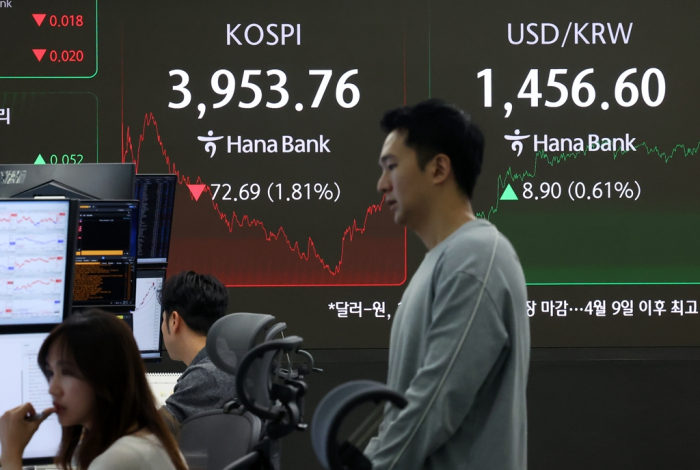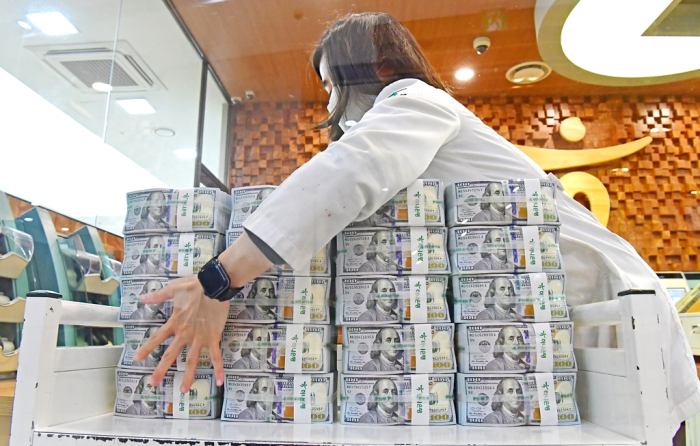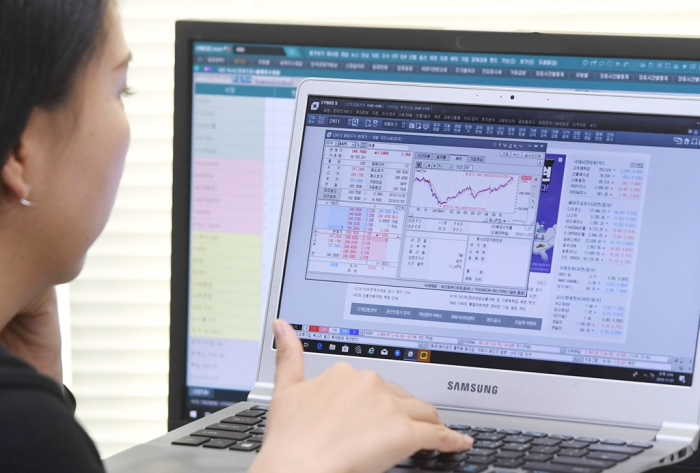The Korean foreign money tumbled previous 1,450 gained to the greenback on Friday as renewed threat aversion triggered by indicators of a slowdown within the US jobs market compounded considerations over Korea’s $350 billion US funding bundle as a part of the Seoul-Washington tariff deal.
The gained completed at a seven-month low of 1,456.9 per greenback in Seoul’s onshore market, down 9.2 gained from the day prior to this’s shut.
The foreign money opened at 1,448.1 gained and steadily declined by means of the session, touching an intraday low of 1,458.5.
The extent marks the weakest shut since April 9, when the dollar-won price hit 1,484.1 amid escalating US-China tensions.
Merchants stated Seoul’s overseas change market was rattled by recent knowledge from US employment consulting agency Challenger, Grey & Christmas, which confirmed that US corporations introduced 153,074 job cuts in October – the best October determine since 2003.
The report stoked fears that the world’s largest financial system is dropping momentum, prompting a flight from risk-sensitive belongings such because the gained.
Sentiment was additional undermined by renewed debate over a possible “AI bubble” and a rekindling of geopolitical friction between Washington and Beijing, in addition to indicators of fragility within the US labor market.
FOREIGNERS SELL KOREAN STOCKS TO BOOK PROFITS
The gained additionally got here beneath strain as overseas traders prolonged their retreat from Korean equities for a fifth consecutive session, promoting a internet 479.1 billion gained ($329 million) value of shares on the primary bourse.
The benchmark Kospi index fell 1.81% to shut at 3,953.76, its sharpest day by day decline in practically two months.
The tech-heavy Kosdaq market declined for a 3rd straight session, with its key index falling 2.38% to shut at 876.81.
Analysts stated foreigners are additionally on a promoting spree to ebook positive factors from their funding in Korean equities.

“The gained has no clear help components in the meanwhile,” stated a Seoul-based foreign money dealer. “Each international threat headline and each little bit of greenback power is being amplified by the structural outflow strain from Korean traders.”
Analysts warned that the foreign money’s weak point could show extra persistent than in previous episodes.
Korea’s ongoing surge in abroad funding, together with a authorities plan to channel as much as $20 billion a 12 months into US belongings, has raised structural considerations about greenback demand outstripping provide.
“Between company funding overseas, retail flows into US shares and overseas promoting of Korean equities, the underlying demand for {dollars} stays sturdy,” stated Moon Da-un, a Korea Funding & Securities analyst. “The (FX) market might simply take a look at 1,480 within the close to time period.”
1,400 WON/DOLLAR RANGE: NEW NORMAL?
With no imminent catalyst for a rebound, coupled with the greenback buoyed by safe-haven demand, merchants now worry the 1,400 stage could also be settling in as the brand new regular for Korea, Asia’s fourth-largest financial system.

Analysts stated that as Korean corporations enhance their abroad investments, there may be additionally a rising tendency to carry on to export proceeds in {dollars} reasonably than changing them into gained.
“Since expectations of a weaker gained have develop into entrenched, exporters’ demand to promote {dollars} seems to have weakened,” stated Korea Funding analyst Moon.
Seoul’s pledge to spend $20 billion in annual US investments can also be seen as a burden on the overseas change market.
1,500 POSSIBLE BY YEAR-END
Though the federal government and financial authorities, together with the Financial institution of Korea, stated that there will likely be no affect as a result of the funds will likely be raised by means of abroad dividends and curiosity revenue, some business watchers disagree.

Lee Yoon-soo, an economics professor at Sogang College, stated, “As a result of the funds to be put aside as overseas reserves are being invested within the US, it successfully reduces the authorities’ capability to intervene, when crucial, within the foreign money market.”
Specialists count on the gained to weaken additional within the close to time period.
“The change price might attain 1,500 by year-end,” stated Park Hyung-jung, an economist at Woori Financial institution. “Determination-making must be based mostly on the idea that the gained will stay at this elevated stage for a while.”

